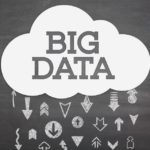Big data has generated great demand for training, but, Who is best suited to work in this area?

Just when we thought we had all the answers, they suddenly changed all the questions. This phrase, which was made popular by the Uruguayan poet Mario Benedetti, originally had no relation to technology, but, today, it describes perfectly what many professionals feel about how digitalisation of the economy is changing the employment market.
Big data, artificial intelligence, the Internet of Things, the blockchain, etc., are the cars of a train full of opportunities, one that many are trying to board in order to give new impetus to their careers.
Big data has slowly been surrounded by a tiny training ecosystem for the three essential types of experts it requires: data scientists, who are expert in data usage; big data architects, who specialise in infrastructure and platform development; and those who will manage the new business lines created by the processing and exploitation of the data gathered.
However, in addition to specialisation and training, a big data professional must have very specific qualifications beyond mere expertise in the field. Raúl Arrabales is a professor in the big data programme at the business school ICEMD, an Analytics Senior Manager in Accenture Analytics, and a PhD in Science and Computer Technology. Given his training, one might expect that, asked what a big data expert needs, he would respond with a long list of technical terms.
Nothing could be farther from the truth. Arrabales stated: “We first look for those who are able to learn quickly and are not afraid to learn a new technology every two months.”

Nothing could be farther from the truth. Arrabales stated: “We first look for those who are able to learn quickly and are not afraid to learn a new technology every two months.”
The second criterion he mentions is also a non-technological trait: “It is very important that candidates be able to work in teams because this is a multidisciplinary area, and team members must work well with the project leader, the data scientist, the algorithm designer, etc.” Such collaboration leads to more ambitious and innovative projects. We are definitely not looking for the typical, asocial, solitary hackers portrayed in many films.
Álex Rayón, who heads the Big Data and Business Intelligence programme of the University of Deusto, states that data scientists must have great technical expertise, but must also have significant analytical skills and be able to find potential applications for the data gathered. He insists that “it is not enough to know programmes.” The University of Deusto implements these principles and offers a comprehensive education in which 40% of the time is spent on technology, 35% on business, and 25% on statistics.
Rayón states, “Since Spain is a very polarised country, hybridisation is very important.” It is a fundamental trait for anyone who wants to excel as a “data interpreter”.
Even so, Rayón admits that training in mathematics is often the best basis for later specialisation in big data: ”Our best graduates – who now earn very well – studied either mathematics or physics.”
Nevertheless, it is not all a question of numbers. Rayón points out, for example, that philosophers also have great potential in the area of big data since “they have brilliant minds and have been trained to reflect upon and solve problems.”
Arrabales states that data scientists must know more mathematics than computer scientists, and more computer science than mathematicians, but also that big data is suited to many types of people, in particular to jacks-of-all-trades. Outside the classroom, there are many opportunities on the employment market, mainly at specialised agencies and large companies in all sectors, since they are beginning to create their own big data departments.